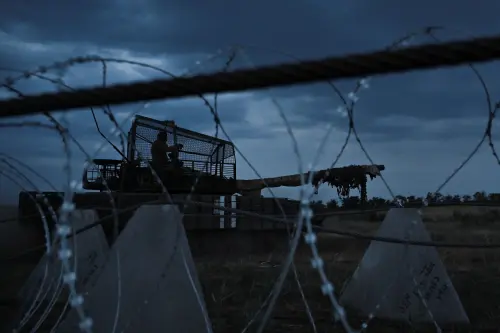In response to U.S. requests for military support to enforce a future peace agreement, Europe faces a dilemma. Deploying European peacekeepers to Ukraine could strain NATO's defenses and necessitate U.S. backing for success. While avoiding the need for U.S. troops on the ground, U.S. medium-range missiles and nuclear weapons are seen as essential for deterring aggression.
Mark Lyall Grant, Britain's former national security advisor, stated the necessity of American involvement in security guarantees against Putin. European officials emphasize the need for a U.S. commitment to safeguard European peacekeepers and deter potential Russian threats to Ukraine.
Discussions in Paris revealed a divided stance among European leaders regarding the deployment of peacekeepers in Ukraine. Concerns about direct conflict with Russia and the depletion of European military resources were raised, highlighting the reliance on U.S. support for major operations.
Experts caution that a significant European force in Ukraine could weaken NATO's defenses against a rising Russian threat, potentially overstretching European militaries. Questions arise about the feasibility of swiftly assembling combat-ready troops and addressing key capabilities currently only possessed by the U.S.
Suggestions range from a deployment of several brigades to securing front sectors with rotation for training. The role and deterrence ability of such a force remain under scrutiny, with varying views on deterring Russian ceasefire violations and the implications of NATO involvement.
There are debates about whether Ukrainian forces should secure the contact line, with a proposal to deter from outside Ukraine due to European limitations on medium-range weapons. Concerns persist regarding the lack of U.S.-level deterrence against a nuclear-armed Russia.
